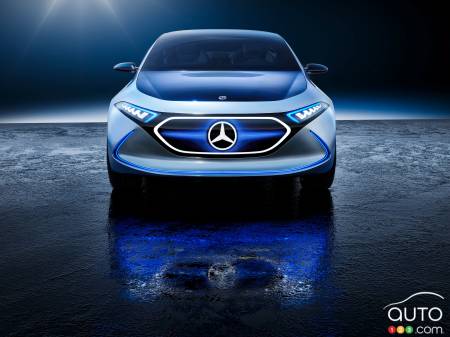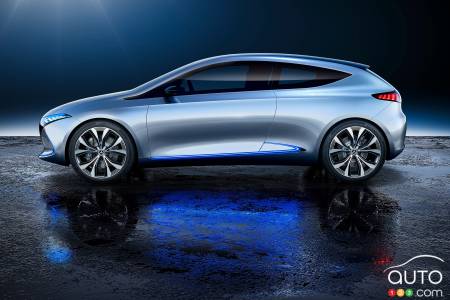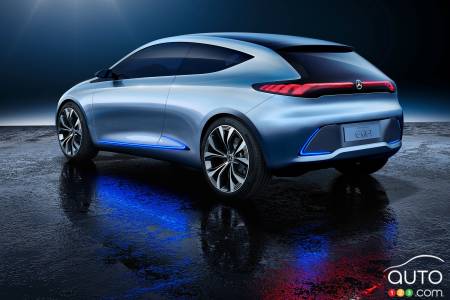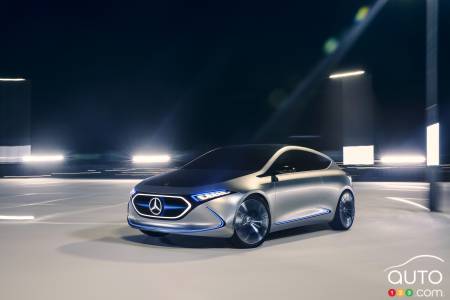Say what you will about Tesla, it is certainly driving change in the automotive industry. If it’s not the innovative models the company is proposing, it’s what’s it’s forcing others to do in reaction to it.
As a case in point, do you think that the Chevrolet Bolt would have made it to market anywhere near as quickly as it did, had it not been for the arrival of the Model 3?
The Model 3, an increasingly common sight on our roads, is calling other manufacturers to action – and one of them is Mercedes-Benz. The German luxury automaker has announced that it will invest 500 million euros to update and enlarge its assembly plant in Hambach, France, to enable it to produce a new all-electric car. Its mission? Take direct aim at the Tesla Model 3.
The new model, which could take the name of the EQA prototype unveiled last year in Frankfurt, is to be one of 10 battery-operated models Mercedes-Benz plans to introduce by 2022.
German automakers have in general been slow to turn their big ships in the direction of electricity, but they are currently working hard to make up for lost time. A number of factors explain this move, but clearly one of them is the fall from grace of the diesel engine, long a dominant presence in Europe.
And then there’s the threat posed by Tesla.
To understand the menace the maverick California-based automaker represents, consider its sales figures last year. Tesla sold 101,312 vehicles last year, most of them Model S and Model X. These products align themselves in direct competition with the luxury models offered by the German manufacturers.
For the latter companies, the threat is real and it is upon them now.

As for Mercedes-Benz’s new model, it’s far too early to tell if the model will make its way to the Canadian market.
An interesting note regarding the French assembly plant chosen by Mercedes-Benz for the production of its future electric model: up to now, it has exclusively built smart cars. The 500 million-euro investment will go to enlarging and refitting the plant, but it will continue to produce smart cars alongside the new electric Mercedes.
The Hambach plant produced some 80,000 smart cars last year.







